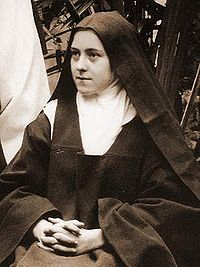
She writes that before Christmas break was over she did not want to make long-term plans with a man who regarded God as a competitor for her loyalty (22). She, in her own words, “surrendered her relationship
This life-altering encounter with Christ was soon challenged when Colleen got a phone call from home telling her that her dad had Alzheimer’s. She felt numbness, emptiness and profound dread. As she graduated from Marquette, and made plans to move to Memphis where she would write for the Memphis Commercial Appeal, she tried to make sense of her new faith and her dad’s life-destroying diagnosis. She resolved to continue a course of “spiritual reading.” The next saint that she discovered helped to shape how she retained elements of her social awareness and feminism without being formed by the secular expressions that destroyed her faith, hope and love. Her reading took her to Dorothy Day, the Catholic social activist who had been admired in social-justice circles at Marquette, where her personal papers are archived. (Colleen’s mom had kept copies of Dorothy Day’s penny publication, The Catholic Social Worker, on the coffee table over the years. She had often heard about Dorothy’s commitment to the human dignity of the poor and the necessity of Christian community.) Thus it was through reading Dorothy Day that Colleen stumbled upon one of my favorite Catholic saints of all–Thérèse of Lisieux, the “little flower.”

Thérèse was a favorite of Colleen’s dad because he struggled all his life with his temper, something the saint called “intellectual pride.” Colleen’s dad, she writes, “was brilliant and courageous but not adept at picking his battles. He wanted to fight them all. He protected the weak with passion but had no patience for snobs, poseurs, or people he saw taking advantage of the defenseless. He often judged himself and others harshly” (45). I can identify so deeply. As a younger man I saw all battles, especially for justice and the rightness of a good cause, as worthy of a scrap for the truth. I loved those portions of the Bible that spoke about “contending for the faith” and defending the truth against false teachers! Some think I lost my nerve with age. I think otherwise. I think I experience deepening sanctification and emotional maturity, at least at some level.
Colleen expresses this so well when she writes about her dad and Thérèse:
In spite of those struggles–or, perhaps, because of them–Dad always reminded me of the same truth that echoes throughout Thérèse’s writings: that God loves us no matter what mistakes we make, and our confidence in his providence should be boundless. Dad’s own confidence sprouted from prayer. I first learned that as a girl, when I would rise before dawn, tiptoe barefoot through my toy-strewn bedroom and the darkened hallway, and find him in his office, reading scripture and praying in silence. Spotting me at the door, he would grin and wave me inside. I would scurry toward him, my blue eyes filled with sleep and tousled auburn curls popping out in every direction as I hopped onto his lap with a mangled baby doll in tow. I would pour out my hopes and dreams, nightmares and worries. He would listen, then tell me about the heavenly father I could count on to care for all my needs. “Remember,” he would say, quoting a favorite verse from Saint Paul’s Letter to the Romans, “everything works together for good for those who love God.” (45).
I must pause here to comment on such a paragraph. First, you can see how rich her prose is in these words. This woman is a beautiful soul and a great writer. The entire book reads like this paragraph. Second, you can readily see that her father was not a nominal Catholic Christian. He truly loved God, read the scripture daily, prayed and deeply trusted the Lord. For far too many evangelicals this story seems impossible to reconcile with their view of saving faith. My counsel to you is simple–get outside your box. Read and meet such wonderful Catholic believers and you will not be the same. They are everywhere if you but look and listen. Your prejudice will be washed away by the sheer joy of seeing and sharing living faith with such Catholics. Third, though Colleen had a three-plus year sojourn deep into radical feminism she was privileged in an unusual way. She had a remarkably real and truly loving father. No wonder she could relate to the saints and to God so very deeply. There is no easy way to nurture faith but it is so much harder for those who never had a loving earthly father like Colleen’s dad. I had such a dad thus I relate so profoundly, even though I am, quite obviously, a man.
As Colleen’s dad declined her faith grew, not always in great leaps but steadily. It was, as Eugene Peterson puts it, “a long slow obedience in the same direction.” It is this direction that makes her memoir so powerful for me.
At one point Colleen speaks of how reading Thérèse of Lisieux impacted her way of paying attention to her declining father and how this began to transform her from the inside out. She writes:
I began paying more attention to the way I interacted with Dad: the gentleness of my touch when I helped him with his jacket, the softness in my voice when I answered a question he had asked dozens of times, the eye contact I gave him at a crowded dinner table when he was getting lost in fast-moving conversation. My natural haste and impatience often made even these little acts of attentiveness difficult to perform with love. Yet the more effort I made–to listen carefully to stories that once bored me or to treat Dad affectionately in public, even when his odd behavior caused a minor scene–the more I noticed the difference that effort made for me as well as Dad. I found myself rushing less, laughing more, and entering a state of peace around my father that I can only compare to prayer (52).
The little way of Thérèse not only changed how Colleen looked at her Dad but it began to change how she saw others like him: the demented and disabled, the infirm and the frail elderly, and the unborn. She says that her readings in the Gospels, joined with her reading of Thérèse and watching over her Dad opened her heart to see how our culture has it exactly backwards with regard to people and their value. Productivity and rationality are not the ways that God judges human value so we should not judge it by these standards either. This led her to “see” the upside-down nature of the kingdom of God. Childlike dependence upon God is the mark of a great soul and the weakest people demonstrate this the most powerfully.
Related Posts
Comments
My Latest Book!

Use Promo code UNITY for 40% discount!






Ben Toh liked this on Facebook.
“Childlike dependence upon God is the mark of a great soul and the weakest people demonstrate this the most powerfully.”
James H Kim liked this on Facebook.
John, are you aware that today’s blog post is identical to yesterdays?
No, Ray there are two posts on Facebook each day because Twitter puts them on both sites and I cannot do that unless I disconnected Twitter from FB. It thus appears twice on the same day.
Strange. Earlier in the day the text on your blog site for part 3 of “My Sisters the Saints” was identical to the text for part 2. I looked at it several times just to make sure I wasn’t seeing things. But now the text for part 3 is correct. I hope I’m not losing it 🙁
Maybe it messed up and you’re fine but then maybe . . . Hmmmm. 🙂
Maybe it messed up and your fine but then maybe . . . Hmmmm. 🙂
In reality, I did reprint some of the same material from Tuesday’s blog into the Wednesday blog. The reason for this is that I write a large piece and then break it up and “cut and paste.” In this instance I messed it up and some appeared twice.